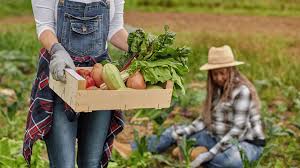The basis of progress and success in business is experience. Without suitable records and accurate interpretation of them, however, much of the value of experience is lost. Accounts preserve experience, and if properly analyzed, they bring out its real significance.
No business worth its name operates today without keeping accounts. The main purpose of this article is to make the student understand the necessity and importance of maintaining farm records; to enhance their ability to handle a set of records and accounts; to improve analytical skills in processing the data collected in farm records; and, lastly, to improve competency in interpreting the results.
The subject of farm business analysis is known under different names, such as Farm Accountancy, Farm Records and Accounts, or Farm Book-keeping. The objective is the same, and the difference lies in the methods of treatment and approaches. Some definitions of these are given below:
1. Farm Accountancy: This refers to both the art and science of systematically recording business transactions in books, allowing the nature, extent, and financial outcomes of these transactions to be easily determined at any time during the year.
2. Farm Book-keeping: This is a system for documenting business transactions, specifically focusing on the financial aspect of farming operations.
3. Farm Accounting: This applies accounting principles to farming businesses. It is an applied science, tailored to meet the specific and often varied operations of different agricultural enterprises.
It is not the purpose of this article to teach advanced book-keeping and accountancy but to expose students to simple types of records and accounts that can be easily maintained and analyzed on an average farm.
Read Also: Photosynthesis, Plant Growth and Partitioning of Assimilate
Stages of Farm Business Analysis

The following are the three steps or stages of farm business analysis:
- Proper recording of accounts and activities.
- Analysis and interpretation of results.
- Present position in farm record-keeping (presentation of results).
Proper Recording of Accounts and Activities
Proper recording of data in the relevant columns of suitable record books is very essential. Daily transactions need to be recorded neatly and correctly in the appropriate columns meant for the purpose.
Making summaries and analyzing the recorded data becomes very difficult if a systematic method of making entries is not followed. Sometimes, all the time and effort put into a haphazard record are lost. Therefore, it is necessary to select suitable types of record books.
Analysis and Interpretation of Results
Raw data in the farm financial records kept by farmers will have little value unless they are properly summarized, tabulated, and analyzed. The second stage of farm accounting begins with the determination of the proper measures of income and the computation of management and efficiency factors for the farm.
Read Also: Plant Disease Album Preparation Guide
Present Position in Farm Record-Keeping

A farm record or account is simply another farm management tool. This tool is developed and used for the same purpose as any other farm equipment used on the farm to aid the farmer in obtaining greater profits or making larger savings in the operation of his business. These records, besides making the farmer plan-minded, also provide valuable facts to be used in future planning.
Even a petty shopkeeper in a village or town maintains records and accounts of his business, but a farmer with much larger investments in farm assets such as land, buildings, equipment, tractors, tube wells, etc. and considerable recurring expenses on farming often does not pay attention to this aspect.
The result is that, unlike the shopkeeper, the farmer has no clear picture of what is really happening to his investments and efforts in the farming business. For farmers operating at an average level of efficiency, the capital investments may not be yielding even the equivalent of the rate of interest on fixed deposits.
Farm family labor working on the farm may not be earning even the market wage rate. Often, farmers continue to lose money year after year in the business of farming but are not aware of it, mainly because they do not maintain farm accounts.
Without farm accounts, a farmer cannot exercise any financial control over his farm business. He is as helpless as a person who rides a blind horse without reins. The decisions he makes are guided by vague estimates and guesses based on his past experience of farming. Such a farm business without farm records is just like a wall clock without hands.
Some farmers keep sales slips from commission agents as records of their income and cash memoranda as records of important farm purchases.
A still larger number of farmers enter important items of receipts and expenditure in their pocket diaries or on a date folio on which transactions take place.
Such records, at their best, are only aids to memory; otherwise, they are rarely drawn upon for decision-making or for a year-to-year review of farm business because they are not kept in a readily usable form and evidently serve a very limited purpose.
If farm records are not made use of and no lessons are learned for future operations, the records are as good or bad as not kept. The main reason why some farms are not profitable is the lack of proper organization and failure to follow improved methods of farming, not, of course, the lack of keeping records. Simply maintaining records will not change a farmer’s loss into profit. If anything does the trick, it would be better management resulting from the lessons learned from farm records.
To be effective in running a farm business, records need to be kept in a systematic and duly classified form so that they can be summarized to give a concise and precise picture of the farm operation over the year. Such records can serve another useful purpose of making comparisons with successful farms under similar farming conditions.
Read Also: Best Organic Fertilizer for Vegetable

